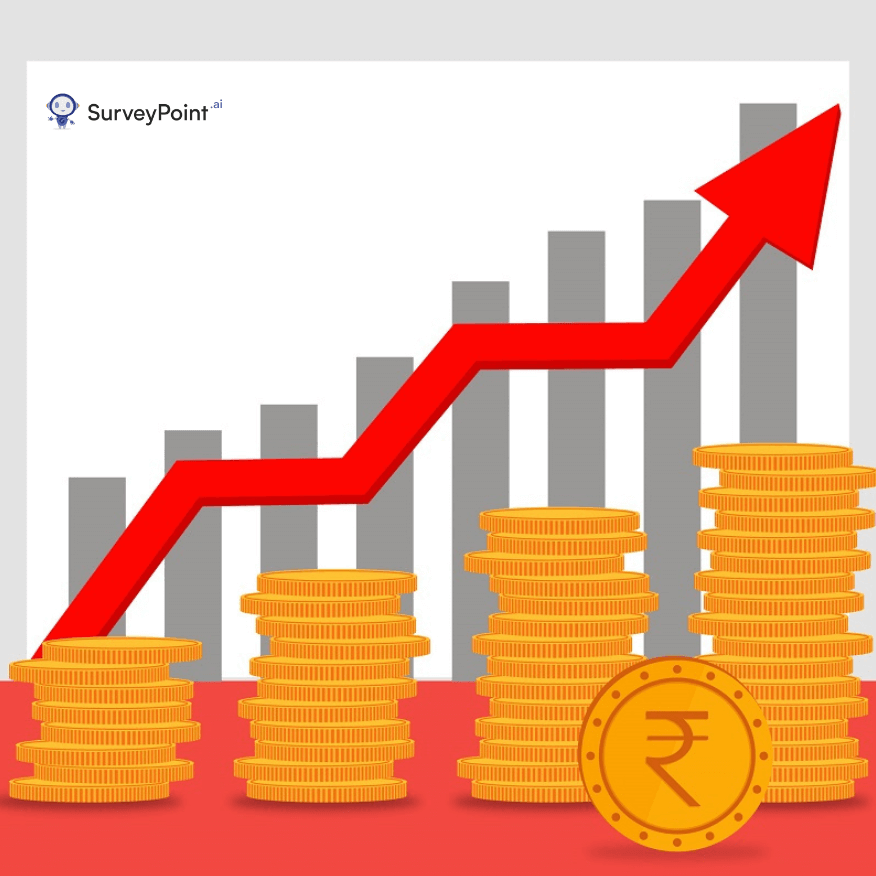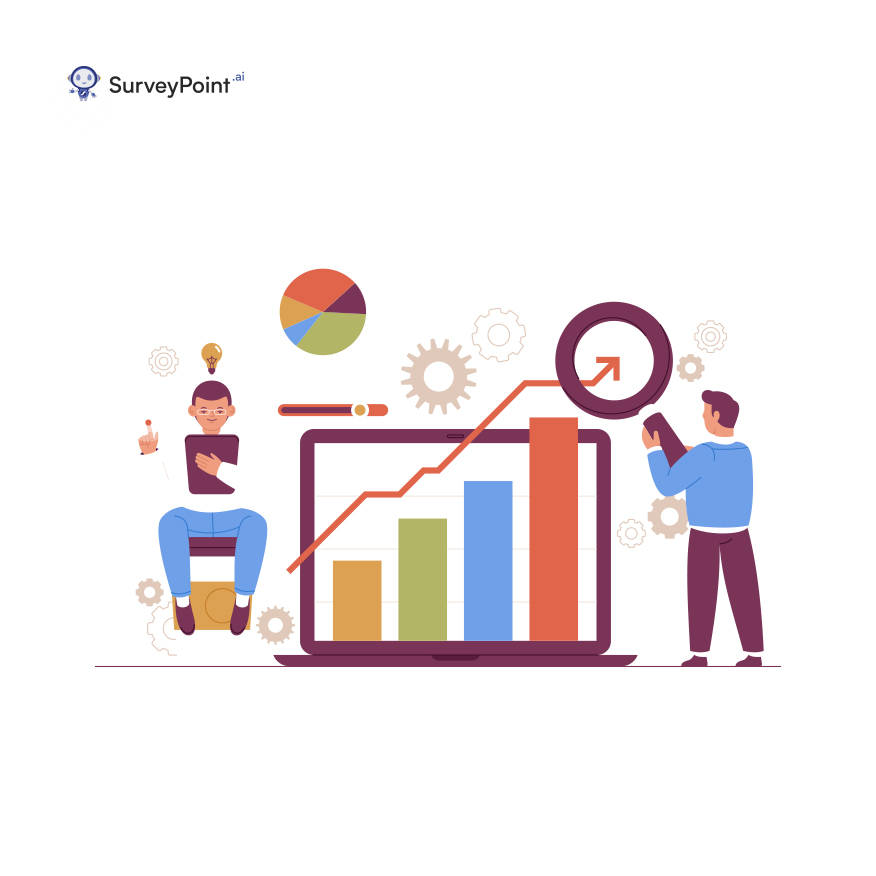
Inflation is an economic phenomenon that makes money disappear faster than a magician’s rabbit. It impacts a company’s operations and marketing plans. Inflation refers to the rise in prices across the board in an economy. In addition, doing market research on inflation is like predicting the weather in the middle of a hurricane.
It’s a disorganized mess that demands a great deal of data analysis and a little luck. That’s why we have economists, right? They love nothing more than staring at numbers all day and pretending they know what they mean.
So, what does inflation market research look like in action? Consider a team of economists debating why avocado costs keep rising while seated in a room with graphs and charts.
Perhaps it’s due to millennials being into avocado sandwiches, one of them chimed. ‘No, it’s due to the drought in California,’ another reply says. ‘In reality, it’s caused by a rise in demand from China,’ a third responds. Up until they agree on a cause, the conversation continues in circles.
An extreme exaggeration, to be sure. Economics would be in shambles without the genuine enterprise of inflation market research. Inflation’s effects on advertising are discussed, along with the best practices for using an inflation calculator.
How Does Inflation Market Research Affect a Company?
Inflation can have a significant impact on marketing strategies. As a result of rising production and delivery expenses, prices rise due to inflation. The increase in price could negatively impact consumer spending due to a decrease in purchasing power. Companies may need to change their marketing plans to maintain their competitiveness and clientele.
By the end of 2023, the annual inflation rate is forecast to be around 4% due to the declining economy.
Thus, businesses can change their marketing tactics by providing discounts or promotions. For example, small businesses offer massive discounts to gain continuous traction during inflation. It is a strategy to persuade consumers to buy their goods or services.
To stay profitable and competitive, businesses may need to re-examine their pricing strategies. Inflation can also impact the messaging used in marketing campaigns. Marketers may need to emphasize the value of a product or service to justify any price increases to consumers.
Additionally, inflation impacts consumer spending habits, decreasing demand for specific products or services.
The Relevance of Market Research in an Inflationary Environment
Market research is crucial for businesses to understand how inflation affects their market. Companies can enhance their marketing strategies by conducting inflation market research. Getting information about client behavior, pricing dynamics, and market trends is helpful.
During times of inflation, market research is particularly valuable. For businesses, it can be advantageous to pinpoint fresh prospects and potential avenues for expansion. For instance, market research shows consumers are willing to pay more for particular goods or services.
How?
By enabling companies to change their approach to pricing. Furthermore, market research can uncover fresh consumer or market trends. It allows companies to create new goods or services in response to shifting consumer demands.
Tips for Conducting Effective Inflation Market Research
Use Inflation Adjusted Data:
Inflation can significantly impact pricing and consumer behavior. Using data adjusted for inflation is crucial to guaranteeing that market research reflects the state of the market.
Focus on Price Sensitivity:
Consumers are likely to be more price-sensitive during inflation. Thus, businesses should focus on understanding consumer price sensitivity through surveys, focus groups, and research methods. This information helps adjust pricing strategies and develop promotions that resonate with customers.
Analyze Competitors:
During inflation, businesses must remain competitive in the market. Therefore, it is essential to analyze competitor pricing, promotions, and messaging to identify areas where the company can differentiate itself and remain competitive.
Monitor Market Trends:
Inflation can change consumer behavior and market trends. Therefore, monitoring market trends to identify new growth opportunities and adjust marketing strategies is crucial.
Utilize Both Qualitative and Quantitative Research Methods:
An inflationary period may benefit from the utilization of both qualitative and quantitative research methods. Focus groups and interviews are two qualitative research techniques offering insightful information about customer behavior and preferences.
Market trends and pricing tactics can be better understood using quantitative research techniques like surveys and data analysis.
Inflation Calculator

Using the inflation rate, businesses can determine how much their money will be worth in the future. It will help to maintain profitability and remain competitive.
For example, an extended time horizon causes the value to fall even further. If the inflation rate is 5%, the worth of one lakh will be approximately Rs. 37,000, Rs. 29,000, and Rs. 23,000 after 20, 25, and 30 years, respectively. The solution is to save inflation-adjusted money.
ALSO READ: Boost Your Research Game With Quantitative Survey Questions Quantitative Research of the Inflation Rate
Inflation’s effects on businesses can be understood with the help of a quantitative study. Numbers are gathered and analyzed to reveal hidden patterns. This type of research helps track inflation rates over time.
It helps in evaluating the impact of inflation on consumer behavior. Also, identify and adjust marketing strategies for businesses as per inflation.
ALSO READ: Market Research Made Simple: Tips and Tricks Research Topics on Inflation:
There are various research topics related to inflation in business, including:
- Impact of inflation on consumer behavior.
- Effectiveness of different pricing strategies in response to inflation.
- Contribution of sales and discounts to reducing the effects of inflation on consumer expenditure.
- The impact of inflation on supply chain management and procurement.
- Effect of inflation on different industries and sectors.
ALSO READ: Representative Samples: Importance + MethodsWhy is Inflation Good for Business?
While inflation can harm businesses, it can also be beneficial in some ways. The following reasons are:
- Price increases driven by inflation can boost revenue and profitability.
- It may also inspire companies to develop effective manufacturing and distribution processes. This leads to increased productivity and competitiveness in the market.
Yet it’s crucial to remember that inflation must remain in check at a reasonable rate. As high inflation rates harm the economy and consumer purchasing power.
Summary
Inflation market research can impact businesses and assist their marketing strategies. Companies must acknowledge the impact of inflation and adjust their pricing and promotions. Quantitative studies and inflation calculators shed light on how inflation affects companies.
This will help identify strategies to mitigate its effects. While inflation has positive and negative effects on businesses, it promotes a stable economy at a modest level.
Not Sure Where To Begin?
Explore our solutions to discover what is most important to your customers,
clients, and prospects. And best of all – it doesn’t take any coding!
Free Trial • No Payment Details Required • Cancel Anytime





